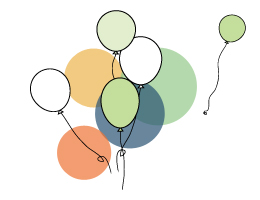UK children conceived through surrogacy and donation are well adjusted

Leading academics at Cambridge University have published the findings of important new research into the wellbeing of UK children born through surrogacy and gamete donation. Publishing their results in the Journal of Child Psychology and Psychiatry, the researchers from the Centre for Family Research looked at how children in 149 UK families were doing at age 3, 7 and 10, after speaking to their mothers and teachers. They compared the ‘psychological adjustment’ of children who were conceived through surrogacy and donation with that of children who were conceived naturally.
Overall they found that the children conceived through surrogacy or donation did not show more adjustment difficulties than the naturally conceived children. This challenges the popular concern that children might experience emotional problems if they are born through surrogacy or donation.
There were, however, some interesting details, particularly in relation to the 7 year olds. At this age, within the assisted reproduction group, the children born through surrogacy showed slightly more emotional and behavioural problems than their donor conceived counterparts (although overall the children conceived artificially were no worse off than the children conceived naturally). The researchers wondered whether this might suggest that the lack of a gestational link may be more of an issue for 7 year olds than the lack of a genetic link. However, this discrepancy had disappeared by age 10, when there was no significant difference between the two groups.
The researchers were disappointed that this nuance in the findings was what attracted the media headlines (rather than the positive findings overall), and that press coverage suggested that children born through surrogacy were at an emotional or psychological disadvantage. Responding to the headlines, the researchers said:
“Press reports have a significant impact on people’s views of topical issues such as surrogacy and we have today been contacted by some of our research partners who are dismayed by headlines. Despite widespread concerns about the welfare of surrogacy children, our research finds that these children are doing extremely well. The slightly higher levels of emotional and behavioural problems shown by surrogacy children at age seven had disappeared at age ten. Our research does not suggest that the same problems will crop up again later as the children hit adolescence.”
Overall, the study provides important hard evidence that the outcomes for children conceived through surrogacy and donation are good, and that children born through third party reproduction are at no disadvantage compared with naturally conceived children.
For families conceived through surrogacy and donation – this kind of research is so important and academics desperately need your support to do it. If you would be prepared to be involved in future research, please contact us.
For journalists and researchers – we can signpost you to accurate research information about surrogacy and egg donation if you are writing on this topic. Please contact us for further information.
